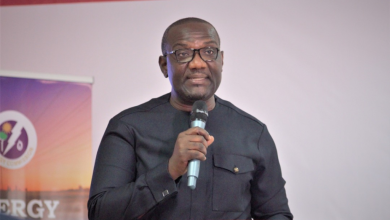
Petroleum revenues for Ghana totalled $1.43 billion in 2022, a 42% increase over the anticipated revenue for that year.
The sum furthermore represents a rise from the $783.33 million in petroleum revenue the nation reported in 2021.
The other two years with the highest revenues from petroleum production, which were $978.02 million and $976.09 million, respectively, were 2014 and 2018.
Alhaji Suleman Anderson, a PIAC member, provided the number while chatting to editors and morning show hosts at Elmina in the Central Region over the course of three days.
The workshop, held in partnership with GIZ, witnessed the presentation of the 2022 annual report compiled by the Committee.
The management and use of petroleum revenues, as well as other topics relating to petroleum revenue management, were covered in the 2022 PIAC Annual Report with the participants.
According to Alhaji Anderson, the war between Russia and Ukraine and high worldwide crude oil prices were to blame for the sharp rise in the price of crude oil on the world market.
He claimed, “The Russia-Ukraine war only caused us problems downstream but made up for the losses we suffered upstream.”
However, he claimed that despite the country’s rising oil revenues, crude oil output was falling, with 51.1 million barrels produced in 2022 compared to 55.05 million in 2021.
“Crude oil production has been declining for three consecutive years. The average decline over the three-year period is 10 per cent,” he explained.
“There is a need for Ghana to speed up the sustainable development of its petroleum resources to reverse the decline in petroleum production through the attraction of new investors as well as the early completion of ongoing projects,” he said.
Alhaji Anderson stated that surface rental arrears increased from $2.58 million in 2021 to US$2.77 million in 2022, and he further explained that four contractors, whose petroleum agreements were terminated in 2021, were responsible for 65% (US$1.80 million) of the arrears.
Therefore, the report urged the Ghana Revenue Authority (GRA) to step up efforts to collect unpaid surface rental debt.
He said that the study mentioned the Ghana National Petroleum Corporation’s (GNPC) ongoing expenditures on projects that conflict with its primary mission.
According to Alhaji Anderson, the PIAC believed that the GNPC should put more effort into enhancing its ability to strategically position the institution within the industry.
Alhaji Anderson added that the analysis indicated large rises of more than 200 per cent in GNPC spending on different line items in 2022, particularly administrative costs and capital projects.
He clarified that the continuous support by the GNPC of road building in the Western Corridor enclave amounts to quasi-fiscal spending.
He said that such initiatives should fall under the purview of the national government.





